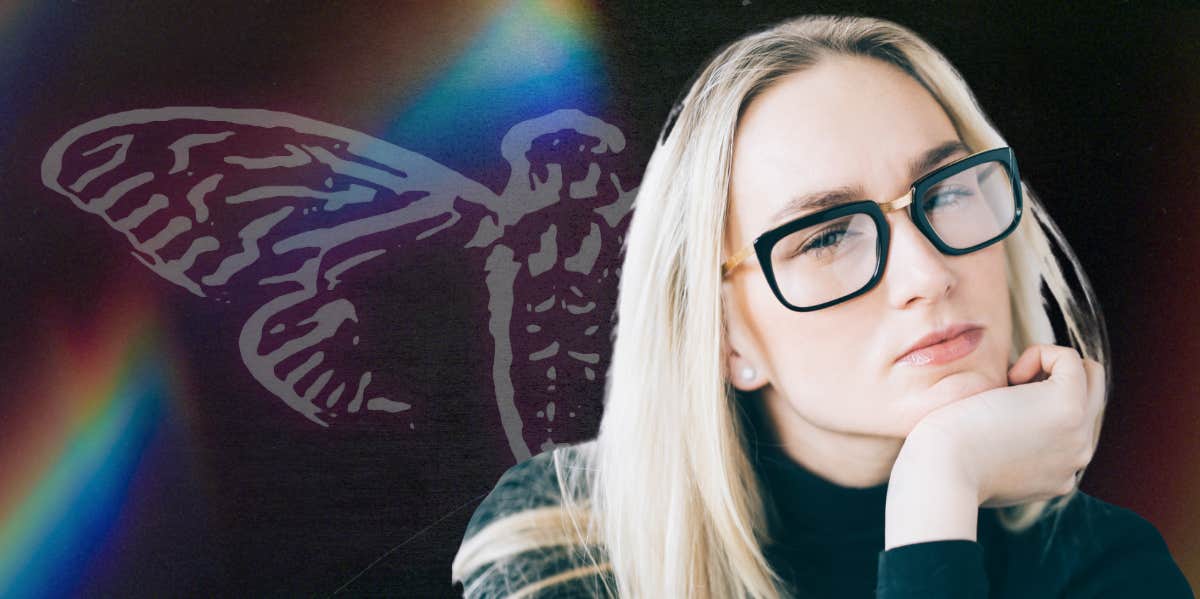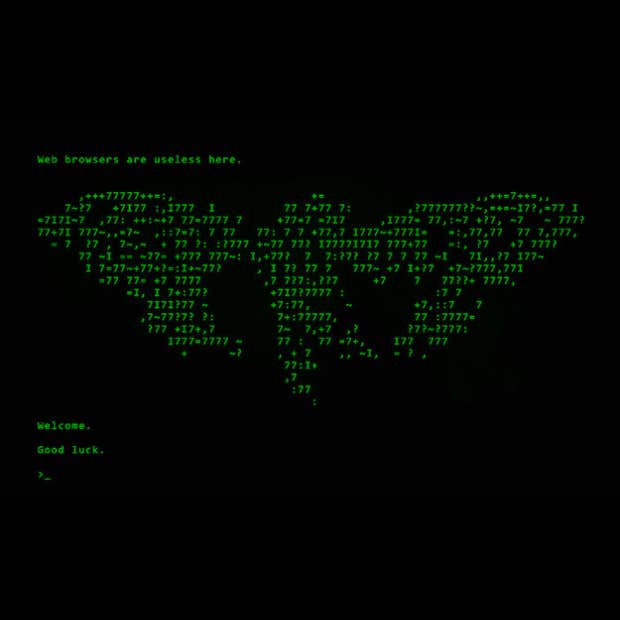The Internet's Most Complex Puzzle That No One Has Been Able To Solve
It's an ongoing mystery to this day.
 visualspace / Getty Images, Tatyana Cherkashina via Canva
visualspace / Getty Images, Tatyana Cherkashina via Canva Most of us would love to believe that we are among the smartest people in the world. When we see test pop up online that have the potential to confirm our intellect, we jump on it.
So, when a series of puzzles called Cicada 3301 started to appear online over a decade ago, it's no wonder people from near and far scrambled to be part of the group of individuals selected by a mysterious organization.
What is Cicada 3301?
Cicada 3301 first showed up on the internet on January 4, 2012. Considered the hardest puzzle on the internet, it was used to vet potential employees for an anonymous company.
The test first appeared on Reddit and 4Chan and read:
“Hello, we are looking for highly intelligent individuals. To find them we have devised a test. There is a message hidden in this image. Find it, and it will lead you on the road to us. We look forward to meeting the few that will make it all the way through. Good luck. 3301.”
 Via Wikimedia Commons
Via Wikimedia Commons
It is thought that solving the Cicada 3301 puzzles would result in finding out who the people behind it were. Along with the first test, two additional tests were released on January 4th of 2013 and 2014. As each was passed, the difficulty level of the next increased.
The purpose was to identify people who had extensive knowledge of computer science. In order to solve the puzzles, participants had to have Coding, Encryption, Decryption Cryptography, Steganography, and other code-breaking expertise.
Cicada 3301 was a very elaborate scavenger hunt that captured the attention of the world. But to this day, it remains the internet's greatest mystery that hasn't led to the reveal of the original poster that created the puzzle.
The Cicada Puzzles
According to those who attempted to solve the puzzles, each of the three "clues" progressed in difficulty as they passed from one to the next. All three of the tests required knowledge in various concepts of computer science.
Encrypted images
To start completing this recruitment contest, an image was shown that had to be opened in a text-only editor WordPad. Only then would the contestant realize that the encrypted message had to be translated using a decoding method called Caesar Cipher, revealing a URL.
Various characters
The texts used in the contest contained a hodgepodge of characters including Mayan numerals, mixtures of letters, and book codes. In addition, images of King Arthur and the Holy Grail were included.
Phone numbers
Not only was attentive reading of the texts required, so was a little bit of math.
Participants who passed the first tasks were provided with a phone number that would lead to the next clue. That clue was an image that contained a couple of hidden prime numbers.
The task was to identify two additional prime numbers, multiply them, and add a domain to the answer.
Mysterious URLs
After uncovering the domain in question, players would go there to find a picture of a Cicada on the screen and an associated countdown set to expire in three days.
GPS coordinates
Once the three days were up, the URL revealed 14 GPS coordinates around the globe in locations like Seattle, Warsaw, Seoul, Paris, Sidney, Miami, Hawaii, and New Orleans.
QR codes
The next step was to travel to those locations, which required dedication and resources from the participants. Upon arrival, they would find a flyer at each destination, attached to a streetlight with an image of a QR code or another Cicada.
Scanning the QR codes lead to yet another URL that featured lines from the William Gibson Poem, “Agrippa (A Book of the Dead).” That clue routed them to Tor Browser, a tool that prevented anyone from monitoring their web activity or to the Dark Web.
The Cicada 3301 Results
The initial scavenger hunt apparently ended after a month when the anonymous group posted the following message on 4Chan:
“We have now found the individuals we sought. Thus, our month-long journey ends. You are undoubtedly wondering what it is that we do we are much like a * think tank * in that our primary focus is on researching and developing techniques to aid the ideas we advocate liberty privacy security.”
One man, Marcus Wanner, who solved the puzzle, claimed to have been asked to give his take on whether or not censorship is wrong, as well as privacy and freedom.
According to him, people that answered correctly were invited to a private meeting and instructed to work on a project, which he failed to finish.
Speculation about the identity of the people behind Cicada 3301 has ranged from cults to secret societies, but there has only been one piece of information that was deemed trustworthy.
A leaked email by one of the contestants who won the 2012 challenge shared correspondence they had received from the organization:
“You have all wondered who we are, and so we shall now tell you. We are an international group. We have no name. We have no symbol. We have no membership rosters. We do not have a public website and we do not advertise ourselves...
We are a group of individuals who have proven ourselves, much like you have, by completing this recruitment contest, and we are drawn together by common beliefs...
A careful reading of the texts used in the contest would have revealed some of these beliefs: that tyranny and oppression of any kind must end, that censorship is wrong and that privacy is an inalienable right."
Many believe Cicada 3301 was a game or publicity stunt similar to Microsoft’s launch of "Halo 2" that was preceded by an alternate reality game called ILoveBees. Similarly, after three months, it ended in an invite to play the game.
We may never know who created Cicada 3301, but at least it will go down as the most mysterious and difficult puzzle to ever appear online.
NyRee Ausler is a writer from Seattle, Washington, and author of seven books. She covers lifestyle and entertainment and news, as well as navigating the workplace and social issues.

